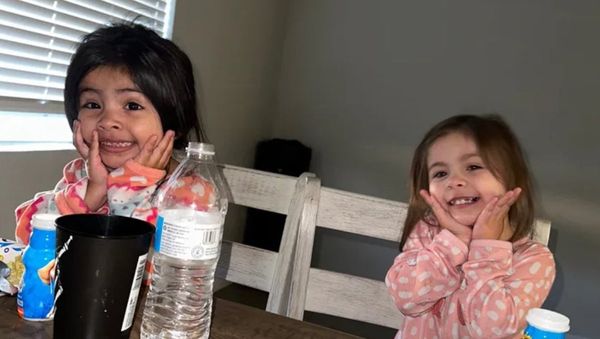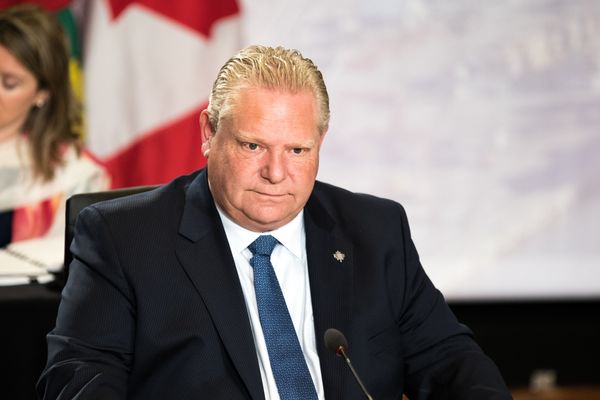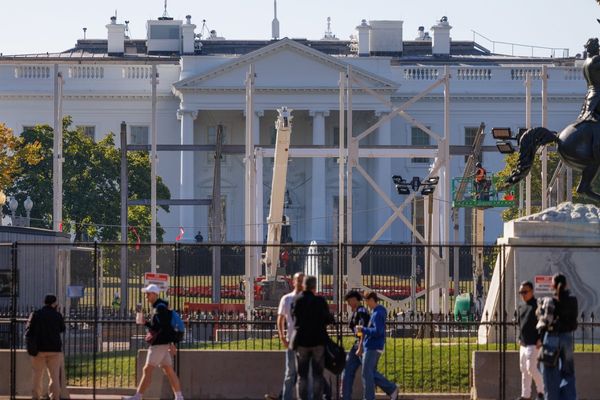WASHINGTON _ California is home to some of the largest populations of ethnic minorities and diaspora communities in the country. Puerto Ricans are not among them.
Puerto Ricans make up less than 1 percent of California's population. Yet California Sen. Kamala Harris has emerged as one of the most vocal champions of the American territory in Congress as the island struggles to recover from the devastation of Hurricane Maria.
Her efforts are mostly flying under the radar now, but they could give her a political boost in a couple years, if _ as many expect _ the Democratic senator makes a run for president in 2020.
Puerto Rico holds its own presidential primaries, offering up more delegates than 25 states. And while its primary isn't until June, it could be a factor in a protracted Democratic primary race.
More importantly, the Puerto Rican community living in Florida is an emerging political force in the swing state.
Mass migration off the island after the 2017 hurricane is only like to intensify Puerto Ricans' clout in the state, particularly around Orlando and Tampa. Earlier this month, the Democratic National Committee gave Florida Democrats a $100,000 grant to conduct outreach to Puerto Rican voters there.
"I think she is laying out the ground game for two years from now, and it's not a bad thing that she is mapping it out," said Carlos Vargas-Ramos, a research associate at Hunter College's Center for Puerto Rican Studies in New York.
Earlier this month, Harris succeeded in attaching an amendment to a disaster recovery bill that would require the Federal Emergency Management Agency (FEMA) to conduct a study on mortality counts from natural disasters _ a direct response to the Puerto Rican government's dramatic undercount of deaths in the wake of Maria.
According to the official count, just 64 people died as a result of the September hurricane. A recent study by Harvard public health researchers, however, concluded that somewhere around 5,000 people died as a result of the hurricane and the ensuing humanitarian crisis.
"That's a big difference," Harris said at a Senate Homeland Security Committee business meeting on June 13.
Harris is also one of the original co-sponsors backing a bill introduced this month to establish a "9/11-style" independent commission to investigate the slow federal response to Hurricanes Irma and Maria in Puerto Rico. Thousands of people on the island still don't have power, nine months after the hurricanes.
Back in November, she was among the first senators to get behind legislation to provide disaster recovery assistance to Puerto Rico and the Virgin Islands, another U.S. territory hammered by hurricanes in 2017.
The same month, Harris and seven other members of Congress traveled to the island to take stock of the hurricane damage and recovery efforts. She has also made public statements and taken to Twitter calling on the government and the public, alike, to come to the island's aid.
Because it is a territory, Puerto Rico has limited representation in Congress and relies on lawmakers from other states _ particularly those that are home to significant parts of the Puerto Rican diaspora _ for support in Washington. In total, there are more Puerto Ricans living in the United States mainland than on the island. The largest populations reside in New York and Florida, with big pockets in New Jersey, Pennsylvania and Massachusetts, as well.
California may not have a large Puerto Rican population relative to its size, but a spokesman for the first-term senator said her concern for the island is consistent with her commitment to fighting for "all underserved and underrepresented communities."
"Sen. Harris believes that when disaster hits, the government has a basic responsibility to help rebuild. Yet for hundreds of days, millions of Americans were left without power in Puerto Rico," spokesman Tyrone Gayle told the Sacramento Bee. She wants to "make sure the failures we saw never happen again."
Gretchen Sierra-Zorita, a Puerto Rican activist based in Washington, D.C., said Harris' advocacy also reflects national ambitions.
"I see her following a path of several well-known progressives on Puerto Rico," said Sierra-Zorita, a founding member of the National Puerto Rican Agenda, a network of Puerto Rican activists.
She pointed to Vermont Sen. Bernie Sanders, who ran for president in 2016, and Massachusetts Sen. Elizabeth Warren. Both senators are well known in Puerto Rico, Sierra-Zorita said, "because they came on really early to address the Puerto Rican fiscal crisis and they had very strong positions that were in favor of the average Puerto Rican." They are also, like Harris, considered likely contenders in the 2020 Democratic primary.
Also like Harris, Sanders and Warren have consistently drafted or co-sponsored legislation to help Puerto Rico recover from the 2017 hurricanes.
So have other lawmakers rumored to be eyeing a Democratic presidential run, like Sens. Kirsten Gillibrand of New York and Cory Booker of New Jersey. Warren, Gillibrand and Booker also have large and vocal Puerto Rican constituencies. Sanders' home state of Vermont is 95 percent white, however, and has a minuscule Puerto Rican community.
Harris has some work to do to stand out from that pack.
"Here in Florida, Puerto Ricans don't know Sen. (Bill) Nelson," the state's incumbent senator, who is running for re-election in 2018, said Carlos Guzman, president of the National Puerto Rican Leadership Council Education Fund. So only the most politically active would know who Harris is, said Guzman, who is based in Orlando.
Still, Guzman said, "We really appreciate every effort that any person _ including, obviously, our political leadership _ takes."
Sierra-Zorita agreed that Harris is "not on the radar of Puerto Ricans," but said the senator's work on the island's behalf could help her with Puerto Rican voters down the road.
Addressing the failures surrounding the post-hurricane death count, for example, may not seem of much consequence to most Americans at this point. But the issue continues to be a hotly debated in Puerto Rico amidst a political fight for control of the territory's Institute of Statistics.
"Should she one day want to trade on this work," said Sierra-Zorita, Harris has now "established a track record."







